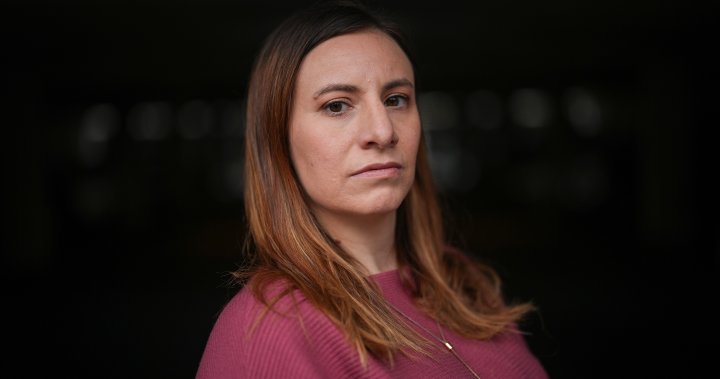The financial burden of cancer extends far beyond the realm of medical bills, encompassing a complex web of hidden costs that significantly impact patients’ lives. Natalie Lipschultz’s experience serves as a poignant example of this reality. Diagnosed with stage three colorectal cancer in 2019, she incurred over $20,000 in out-of-pocket expenses, lost her job amidst chemotherapy, and faced the daunting task of balancing work with treatment. Her story echoes the findings of a Canadian Cancer Society report, highlighting the significant financial strain cancer places on individuals, their families, and the healthcare system. This report estimates the average lifetime out-of-pocket cost for a cancer patient to be nearly $33,000, encompassing lost income, travel expenses, prescription drugs, and the intangible costs of time spent attending appointments and recovering from treatments.
While Canada’s publicly funded healthcare system covers major hospital costs, including chemotherapy and radiation, many ancillary expenses remain the responsibility of the patient. These costs can create significant barriers to accessing care, especially for individuals with lower incomes, fixed incomes, or those residing in rural or remote communities. The financial strain can force patients to make agonizing choices between essential living expenses and vital cancer treatments, potentially delaying or forgoing necessary care altogether. This can negatively impact health outcomes, creating a vicious cycle where financial hardship exacerbates illness. The Canadian Cancer Society report underscores the urgency of addressing this issue, projecting a substantial increase in these out-of-pocket costs over the next decade, primarily due to population growth, an aging population, and improved cancer survival rates. This trend threatens to widen the existing gap in access to care between those who can afford treatment and those who cannot.
A 2024 Canadian cancer study revealed a stark disparity in the financial impact of cancer, demonstrating that patients with annual incomes below $50,000 were significantly more likely to forgo care and experience financial hardship. These individuals reported spending an average of 34% of their monthly income on cancer-related expenses, a devastating proportion that highlights the inequitable distribution of this burden. Lipschultz, while fortunate to have family support and access to public transportation, still faced financial challenges, especially during her maternity leave. Her situation underscores the precarious position of many patients who rely on employment benefits for health insurance, as reduced work hours or job loss can jeopardize this coverage. This leaves individuals vulnerable to the high costs of prescription drugs and other uncovered expenses, forcing them to prioritize basic necessities over their health.
The report’s findings emphasize the critical need for government intervention to bridge the equity gap in cancer care. Experts advocate for policies that alleviate the financial burden on patients and ensure equitable access to essential treatments and services. This includes addressing the high cost of prescription drugs, providing financial assistance for travel and accommodation, and supporting caregivers who often face financial strain while providing essential care. The impact of travel time on treatment decisions is another crucial concern highlighted in the report. Studies have shown that patients facing longer travel times to radiation facilities are more likely to opt for more invasive procedures, such as mastectomies, to avoid the ongoing travel burden associated with less invasive treatments and follow-up appointments.
Dr. Lisa Hicks, a malignant hematologist, witnesses firsthand the immense emotional and financial toll that cancer takes on her patients, particularly those undergoing lengthy and complex treatments like stem cell transplants. She describes it as a full-time, unpaid job, highlighting the significant disruption to patients’ lives and their ability to earn a living. Even seemingly mundane tasks like attending weekly appointments can be challenging for those reliant on public transport or without personal vehicles. Claire de Oliveira, a public health expert, emphasizes the need for provincial governments to address the high out-of-pocket costs that prevent many patients from accessing necessary care. This includes exploring strategies to reduce financial barriers and ensure that patients are not forced to choose between their health and their financial well-being.
The Canadian Cancer Society advocates for a national drug coverage program for take-home cancer medications, a crucial step towards reducing out-of-pocket costs and addressing disparities in access to these vital drugs. Currently, coverage for these medications varies significantly across provinces, creating an uneven playing field for patients depending on their place of residence. Manitoba, Saskatchewan, Alberta, and British Columbia offer full coverage, while Ontario and Atlantic Canada do not. Quebec provides coverage with income-based deductibles, adding another layer of complexity. A national program would standardize access and ensure that all patients have equitable access to life-saving medications, regardless of their province or territory.
Beyond drug coverage, the Cancer Society also calls for consistent national programs for travel and accommodation expenses, addressing the patchwork of existing programs that create further inequities. Additionally, they advocate for modifications to the caregiver tax credit, which currently excludes individuals who cannot work while providing full-time care for a loved one with cancer or another serious illness. This change would recognize the significant sacrifices made by caregivers and provide essential financial support during challenging times. Natalie Lipschultz’s story underscores the long-term financial implications of cancer. While currently cancer-free, she faces the possibility of recurrence and the associated high costs of specialized drugs not covered by insurance. She urges policymakers to acknowledge the profound financial burden cancer places on individuals and families, emphasizing the need for comprehensive support systems that address both the emotional and financial challenges of living with cancer. Her plea is a call to action for a more equitable and compassionate approach to cancer care that recognizes the multifaceted impact of this disease and ensures that all patients have access to the resources they need to survive and thrive.










